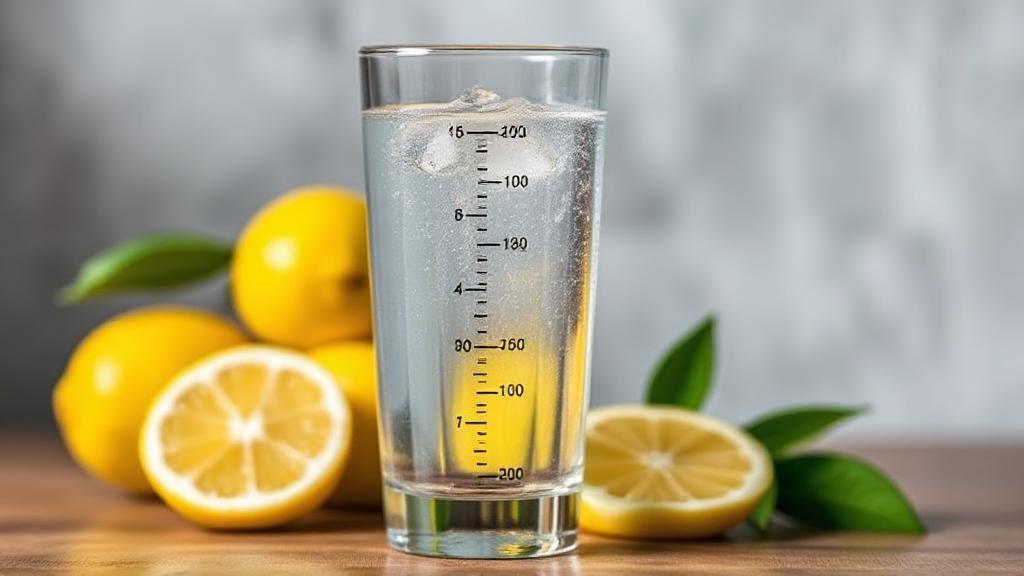The potential benefits of drinking alkaline water: What you need to know
Introduction
Alkaline water has become a buzzword in health and wellness circles, with claims ranging from enhanced hydration to disease prevention. But what exactly is alkaline water, and does the science support its purported benefits? This article explores the facts, the claims, and what you should consider before making alkaline water a staple in your hydration routine.
What Is Alkaline Water?
Alkaline water is water with a higher pH level—typically between 8 and 9—than regular tap water, which is neutral at pH 7. This increased alkalinity can occur naturally when water passes over mineral-rich rocks or can be created artificially through electrolysis, a process that separates water into acidic and alkaline components.
Key characteristics of alkaline water:
- Higher pH: Usually 8–9
- Mineral content: May include calcium, magnesium, potassium, and bicarbonate
- Production: Naturally from springs or artificially via ionizers
For more on pH and water chemistry, see this USGS resource.
How Is Alkaline Water Made?
- Electrolysis: Uses an ionizer to separate acidic and alkaline water
- Mineral addition: Some products add minerals like calcium and magnesium
- Filtration: Alkaline water filters and pitchers are available for home use
Potential Health Benefits
Proponents of alkaline water claim a variety of health advantages. Here’s what current research and expert consensus suggest:
Improved Hydration
Some studies indicate that alkaline water may improve hydration, especially after intense exercise. For example, a study in the Journal of the International Society of Sports Nutrition found that alkaline water could provide better hydration after exercise-induced dehydration. However, the evidence is mixed, and the most important factor for hydration remains the total amount of water consumed. For more on hydration, see daily hydration guidelines explained.
Acid Reflux Relief
A 2012 study published in the Annals of Otology, Rhinology & Laryngology found that alkaline water with a pH of 8.8 may help deactivate pepsin, the enzyme responsible for acid reflux. This suggests potential relief for those suffering from acid reflux or GERD.
Antioxidant Properties
Alkaline water often has a negative oxidation-reduction potential (ORP), which may allow it to act as an antioxidant, neutralizing harmful free radicals. While this is promising in theory, robust evidence from human trials is lacking. For more on natural antioxidants, consider the top health benefits of drinking green tea regularly.
Bone Health
Some research suggests alkaline water may help maintain bone density by reducing bone resorption (the breakdown of bone tissue). For example, a 2009 study in Bone found that alkaline mineral water could reduce bone resorption markers in postmenopausal women. However, the overall impact on bone density and fracture risk remains unclear.
Blood Pressure, Diabetes, and Cholesterol
Preliminary studies have indicated that alkaline water might help lower blood pressure, blood sugar, and cholesterol levels. However, these studies are limited, and more robust clinical trials are necessary. For natural strategies, see ways to lower blood pressure without medication.
Detoxification
Some marketing claims suggest alkaline water can detoxify the body. However, your liver and kidneys are already highly efficient at removing toxins. There is no scientific evidence that alkaline water enhances these natural processes. For safe and effective detox tips, see natural ways to detox your body safely and effectively.
The Science Behind the Claims
While some small studies and anecdotal reports suggest benefits for specific conditions like acid reflux, the overall scientific evidence supporting the broad health claims made for alkaline water is limited and often inconclusive. The human body is remarkably efficient at maintaining its pH balance, regardless of what we consume.
Key points from current research:
- Hydration: Some evidence supports improved hydration, but results are mixed.
- Acid reflux: Moderate support for use in managing acid reflux.
- Chronic disease prevention: Insufficient evidence to support claims.
For more, see the Mayo Clinic’s take on alkaline water.
Potential Risks and Considerations
While alkaline water is generally considered safe for most people, there are some important considerations:
- Cost: Alkaline water is often more expensive than regular water.
- Quality: Not all alkaline water is created equal; some may contain added sodium or other chemicals.
- Over-alkalization: Excessive consumption can lead to alkalosis, with symptoms like nausea, vomiting, muscle twitching, and confusion.
- Medical conditions: Those with kidney disease or on certain medications should consult a doctor before consuming alkaline water.
For more on water safety, visit the CDC’s water safety page.
How to Incorporate Alkaline Water
If you’re interested in trying alkaline water, consider these tips:
- Start gradually and monitor your body’s response.
- Consider home options like pH drops, alkaline filters, or ionizers.
- Balance with other healthy habits—alkaline water should complement, not replace, a balanced diet and regular exercise.
For more on improving your overall health, see effective strategies to improve your gut health and ways to improve digestion naturally.
Should You Drink Alkaline Water?
If you enjoy the taste and feel of alkaline water, it’s likely safe to include it as part of a balanced diet. However, regular water is sufficient for most people. The best way to stay hydrated and healthy is to drink plenty of fluids, eat a balanced diet, and consult with your healthcare provider about any specific health concerns.
Conclusion
Alkaline water may offer some benefits, particularly for hydration and acid reflux relief, but the evidence is not yet strong enough to support many of the broader health claims. As with any health trend, approach with a critical eye and rely on reputable sources for guidance.
For further reading:
Stay informed, stay hydrated, and always consult with a healthcare professional before making significant changes to your diet or lifestyle. For more hydration tips, check out how much water you should drink each day, and for a refreshing twist, see the top health benefits of drinking lemon water daily.
